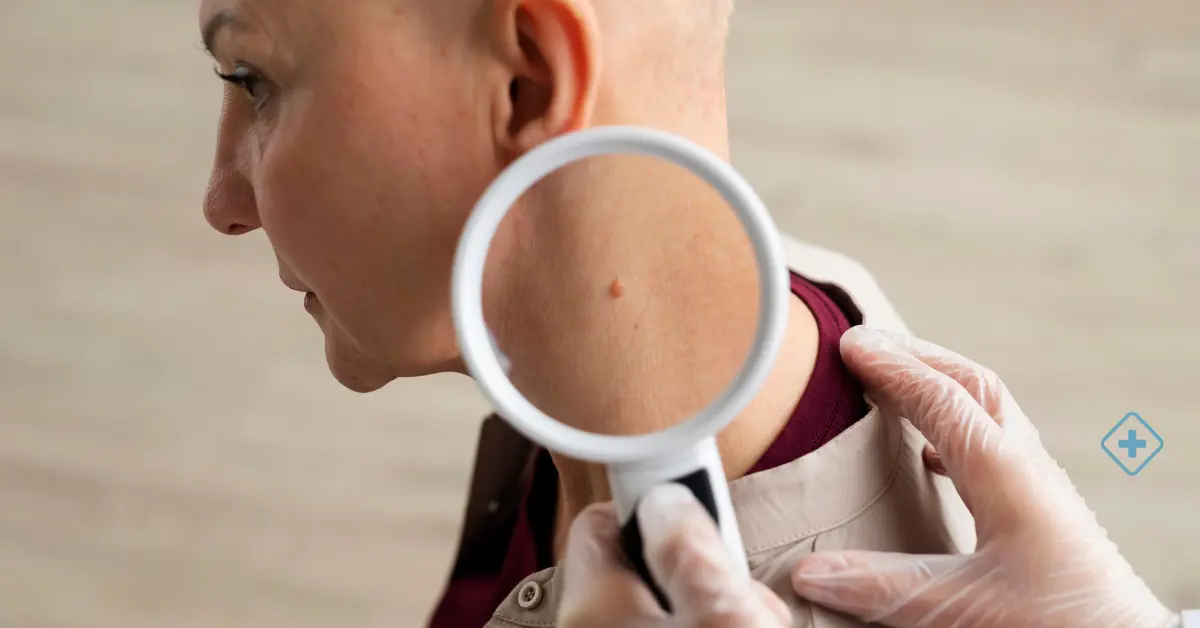
Lung Cancer
Symptoms, Causes & Diagnosis

Lung cancer is a type of cancer that starts in the lungs. The cells begin to grow and multiply in an excessive and uncontrolled manner, causing tumors to develop in the lungs that reduce a person's ability to breathe.
Lung cancer is one of the most common cancerous diseases and is the leading cause of cancer death in both men and women in the United States. It usually occurs in people who smoke, however, it is also possible for those who have never tried a cigarette to have this type of cancer.
There are two main types of lung cancer: small cell and non-small cell. These types of cancer develop differently and therefore require different treatments.
Causes
Smoking is the main cause of most lung cancer, both in smokers and in people exposed to cigarette smoke. However, lung cancer can also occur in people who have never smoked and have not been exposed to secondhand smoke.
In those cases, the cause of lung cancer is not apparent. Cigarettes contain carcinogens that cause changes in the tissues of the lung. Initially, the body can repair the spout, but with each exposure to these substances, damage to the healthy cells that line the lungs increases. Over time, cells begin to act abnormally, leading to cancer.
Symptoms of Lung Cancer
Many people with lung cancer don't have symptoms until the disease is in its advanced stages. Because there are very few nerve endings in the lungs, a tumor could grow without causing pain or discomfort.
When symptoms are present, they are different in each person, but may include:
-
A cough that doesn't go away and gets worse over time
-
Hoarseness
-
Constant chest pain
-
Shortness of breath or wheezing
-
Frequent lung infections such as bronchitis or pneumonia
-
Coughing up blood
Symptoms that appear until cancer has spread to other parts of the body
-
Weight loss
-
Loss of appetite
-
Headaches
-
Bone pain or fractures
-
Blood clots
Risk Factors
-
Being a smoker
-
Exposure to secondhand smoke also known as a passive smoker
-
Radon gas exposure
-
Asbestos exposure
-
Exposure to other carcinogens.
-
The air pollution
-
Arsenic in drinking water
-
Previous radiation to the lungs
-
Family history with lung cancer
Lung Cancer Diagnosis
How lung cancer is diagnosed differs from person to person. The Pulmonologist or Oncologist will choose tests based on a number of factors:
-
Your medical history
-
Your symptoms
-
Findings from your physical exam
-
Imaging Tests
Your doctor might order imaging tests that may help find lung cancer.
-
Positron emission tomography (PET) scan
-
X-Rays
-
Bronchoscopy biopsy
-
Endobronchial ultrasound (EBUS)
-
Endoscopic esophageal ultrasound (EUS)
-
Mediastinoscopy and mediastinotomy
-
Thoracentesis
Treatment
The Oncologist will determine what is the appropriate treatment according to factors, such as the state of general health and how advanced the cancer is.
If the choice is surgery, the surgeon will remove the affected part of the lung and a section of healthy tissue. Other treatment options are:
-
Radiotherapy
-
Chemotherapy
-
Radiosurgery
-
Medicines
-
Immunotherapy
-
Palliative care.
Prevention
-
No smoking or quitting
-
Avoiding second-hand smoke
-
Protect yourself from exposure to toxic chemicals
-
Follow a diet rich in fruits and vegetables
-
Exercise frequently
Coping with lung cancer
Being diagnosed with lung cancer can be overwhelming, but with time and the right support, you will find a way to deal with these feelings of distress and uncertainty. The most important thing is to be aware that there are treatments to combat this cancer and that many patients have recovered satisfactorily with proper treatment.
Finding out about lung cancer is vital to make the right decisions in conjunction with the specialist, and ask the necessary questions to the Oncologist. Surrounding yourself with family and friends, and seeking alternative help with a therapist is helpful.
If you think you are at risk for lung cancer or if you have any symptoms, talk to your doctor about tests to see if you have lung cancer. When detected early, patients with lung cancer have more treatment options and a much greater chance of survival.
When should I visit the Doctor?
It is essential to consult an Oncology specialist to accurately diagnose lung cancer and carry out the corresponding studies, to assess the different treatment options available.
When consulting the Oncologist, it is crucial to record all the symptoms for how long they have manifested themselves. If you are taking any medication, you should also mention it to the doctor. Learning more about lung cancer is the first step in controlling it.

Skin Cancer
Early detection of skin cancer is crucial for successful treatment.
Thyroid Cancer
Thyroid cancer, while serious, is often treatable with early diagnosis and proper care
Breast Cancer
Prevention plays a critical role in the fight against breast cancer
Colon Cancer
Colon cancer is a disease in which abnormal cells grow and multiply uncontrollably in the colon or rectum.
- Do You Need an Appointment with a Specialist?
- call us
- write us
- let's talk





